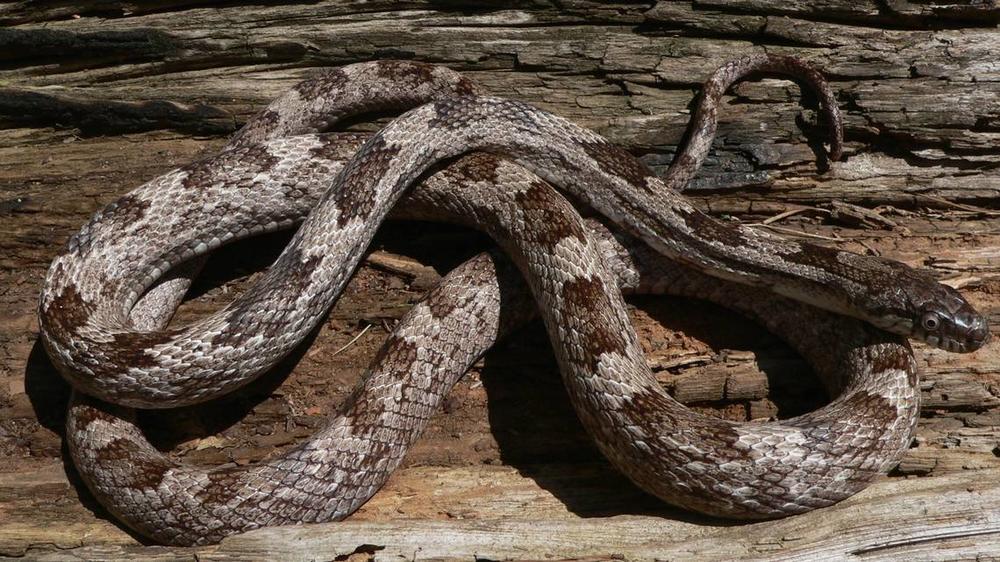
Caption
Georgia has 47 different species of snakes, most of which, including this rat snake, are non-venomous.
Credit: John Jensen / Georgia DNR

Georgia has 47 different species of snakes, most of which, including this rat snake, are non-venomous.
There are 47 of them in Georgia.
Only seven of them are venomous.
However, you’ll most likely only encounter one common species while you’re out and about this spring.
That’s right, we are talking about snakes.
The copperhead lives and thrives in the suburban areas, where most Georgians live.
But the good news?
“While at least one of the state’s venomous snake species could be found in each county in the state, seldom are they the most common snakes encountered,” Daniel Sollenberger, senior wildlife biologist with DNR’s Wildlife Conservation Section said.
So, what should you do when you see a snake nearby? And better yet, what should you not do?
The Georgia Department of Natural Resources (DNR) urges residents to use these tips when encountering a snake:
The Georgia DNR says to never attempt to handle the snake. Keep your distance and try not to alarm the snake or provoke it in any way.
To keep snakes away from your home, the DNR encourages residents to remove brush, log piles and other habitat features that attract mice, lizards and other animals that are prey for snakes.
Snakes actually have several benefits in the wild. Some snakes eat vermin and rodents and others feed on slugs, snails or even centipedes, which are all creatures Georgians want to keep away from their homes and gardens. For more information about Georgia snakes, visit the Georgia DNR website.
This story comes to GPB through a reporting partnership with The Telegraph.